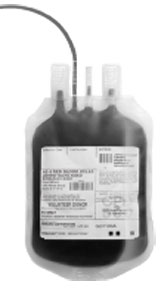|
SAVE LIVES WITH :
YOUR BLOOD DONATION
 On June 14 the world blood donor day was observed at the Bandaranaike Memorial
International Conference Hall (BMICH) where over 1,500 voluntary blood donors
and campaign organizers were felicitated for their untiring efforts in this
worthy cause. On June 14 the world blood donor day was observed at the Bandaranaike Memorial
International Conference Hall (BMICH) where over 1,500 voluntary blood donors
and campaign organizers were felicitated for their untiring efforts in this
worthy cause.
National Blood Transfusion Services (NBTS) also announced that they had reached
the hundred percent voluntary donor base - an achievement which was only a dream
to all developing countries and even most of the developed countries.
“Hundred percent of our donors are voluntary non remunerated donors,” they noted
with justified pride.” No replacement or family donors are accepted to NBTS any
more”, they added.
Mission
Outlining the mission of the NBTS a senior official said, “Our aim is to ensure
the quality, safety, adequacy and cost effectiveness of the blood supply and
related laboratory, clinical, academic and research services in accordance with
national requirements and WHO recommendations. Our vision is to be a unique
model for the world securing quality assured blood services, through a
nationally coordinated system.”
The spokesman said that blood donations could save thousands of lives especially
now with more people meeting with road accidents or for transfusions for
thalassaemia victims. “One person’s blood can save as many as three lives”, he
said Around 2,000 Thalassaemia patients require such infusions.
Thalassaemia is the commonest genetic disease in Sri Lanka which has been
identified as a country that has an intermediary prevalence rate. Patients with
the disease often children, require several transfusions to keep them alive and
prevent their white cells from rising, leading to severe anaemia.
Components
Blood consists of several components.
Cells - Red blood cells, White blood cells, Platelets.
Liquids - Plasma, Proteins
A donated whole blood unit is usually separated into components before given to
a patient. These separate components are given to different patients with
different needs. So one donated whole blood unit can save as many as 3 lives.
 So how many times can a person donate blood in his life time? So how many times can a person donate blood in his life time?
“You can donate blood in every 4 months. Blood is the only organ that can be
donated without having any permanent loss. This is because the donated blood
will be recovered completely in maximum 4 months time,” he said. The blood
donated is all carefully screened and tested at the lab before being distributed
to the health facilities requiring them.
Despite the need for blood so as to have adequate stocks in the blood bank,
sources lamented that it had been found that only 2.5% of Lankans donate their
blood of whom 4.13% are males and 1.15 % females.
Integral
The National Blood Transfusion Service (NBTS) established in Sri Lanka in 1950s
is an integral part of the National Health Service. Its main function is to
collect process and deliver safe blood, blood components and blood products
through 19 cluster centres and 77 peripheral blood banks situated island wide.
Who can donate blood?
Responding to this question the NBTS outlines the following criteria to be
accepted as a blood donor. These criteria are set forth to ensure the safety of
the donor as well as the quality of donated blood.
o Age above 18 years and below 60 years.
o If previously donated, at least 4 months should be elapsed since the date of
previous donation.
o Hemoglobin level should be more than 12g/dL. (This blood test is done prior to
each blood donation)
o Free from any serious disease condition or pregnancy.
o Should have a valid identity card or any other document to prove the identity.
o Free from “Risk Behaviour”.
Risk Behaviour
o Homosexuals.
o Sex workers and their clients.
o Drug addicts.
o Engaging in sex with any of
the above.
o Having more than one
sexual partner
Type of Donors
o Voluntary non remunerated donors. (Donate for the sake of others and do not
expect any benefit. their blood is considered safe and healthy)
o Replacement donors. (Donate to replace the units used for their friends or
family members)
o Paid donors. (Receive payment for donation
o Directed donors. (Donate only for a specific patient’s requirement)
All those interested in donating their blood should contact the Donor section of
the NBTS at Elvitigala Mw., or telephone 2369931 or email:
[email protected]
- C.A.
|

